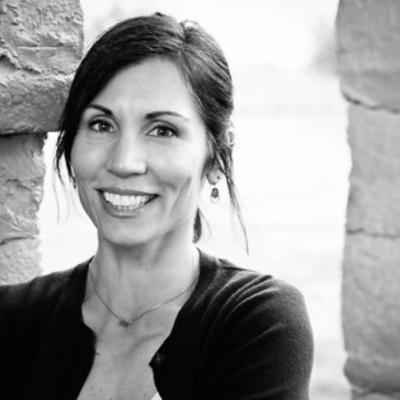An interview with attorney Darlene Cortina
Darlene Cortina, who was most recently an assistant attorney general for Pima County, credits her bachelor’s in English (literature) at ASU—which she earned in 1998—with informing her legal career. We had a chance to sit down and talk over the impact of her education and the value she found in a humanities-based degree program.
Note: The interview has been lightly edited for clarity and length.
MC: Hi Darlene. What is your current occupation?
DC: I was at the attorney general's office for seven years. I represent a state agency in the superior court. That means I represent the agency’s position, I mediate on behalf of them, I write motions and responses and litigate in court on their behalf. I’ll be moving to Phoenix and working in the Maricopa County Attorney’s office in the civil division soon.
MC: What degree did you graduate with from ASU?
DC: English literature was my degree—my BA. I started out with biology and switched to English because I love reading, writing, and analyzing. I took a lot of classes in philosophy and religion too because they’re so interesting.
MC: Can you describe some highlights of your experience at ASU?
DC: I loved ASU when I was there in the ‘90’s. I was raised in Bridgeport, CT and I loved the campus and community—they were so different from what I knew. ASU had top faculty, professors and writers who taught the classes and lots of interesting people for talks and guest lectures. On and off campus, Mill Ave in the ‘90’s was a pretty cool place. Back when Changing Hands Bookstore was there, there were poetry readings and cafés to sit and chat and drink too much coffee [and] a lot of diverse people around, talking and debating on and off campus. Those [experiences] broadened my horizons.
MC: Can you talk about how your experience as an English major prepared you for working in law?
DC: It really is a great background to have an English degree. I was a middle school teacher for a while, then went to law school. You have to write and read critically as a literature major, and that’s what you have to do as a lawyer too. Practicing writing and analysis is a super great background for law. Being able to think critically is so important.
MC: What advice would you give students wanting to follow a similar career path to yours?
DC: Take classes that enrich your understanding of the world like literature, philosophy, and history. They help make you a well rounded person. Humanities classes, whether in literature or philosophy or history, help you learn how to think critically and have a broader and more diverse perspective. As an attorney, that’s important because you really are in a position to help people and you should be as knowledgeable as possible of the world.
MC: Other advice for getting into law?
DC: The state of Arizona is looking for lawyers. As long as you stay focused you’re likely going to be able to get a job that you really love. The universities offer LSAT prep—take some practice tests. Also, don’t be afraid to reach out to practicing attorneys in an area of law that might interest you and ask them what their day is like and what they do; the legal community is fairly small and everyone is happy to help with any advice they can give.
Image: Courtesy photo of Darlene Cortina

